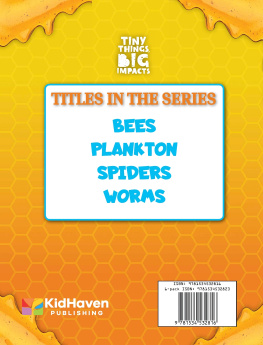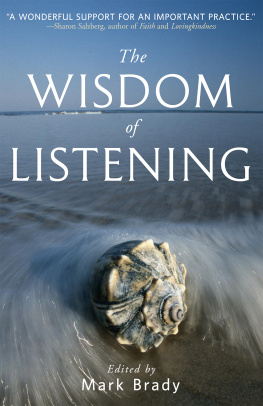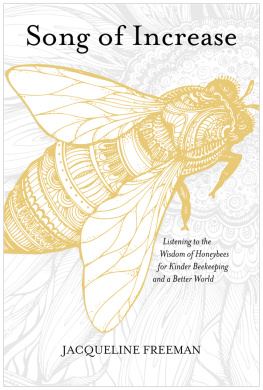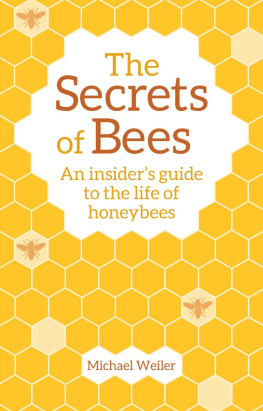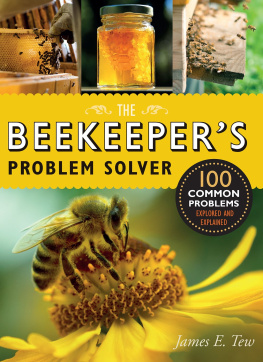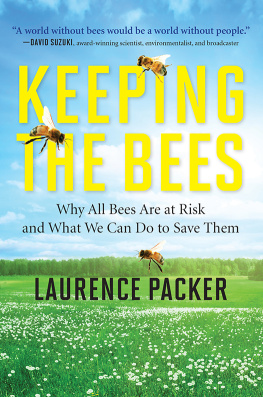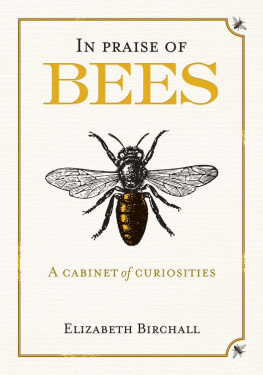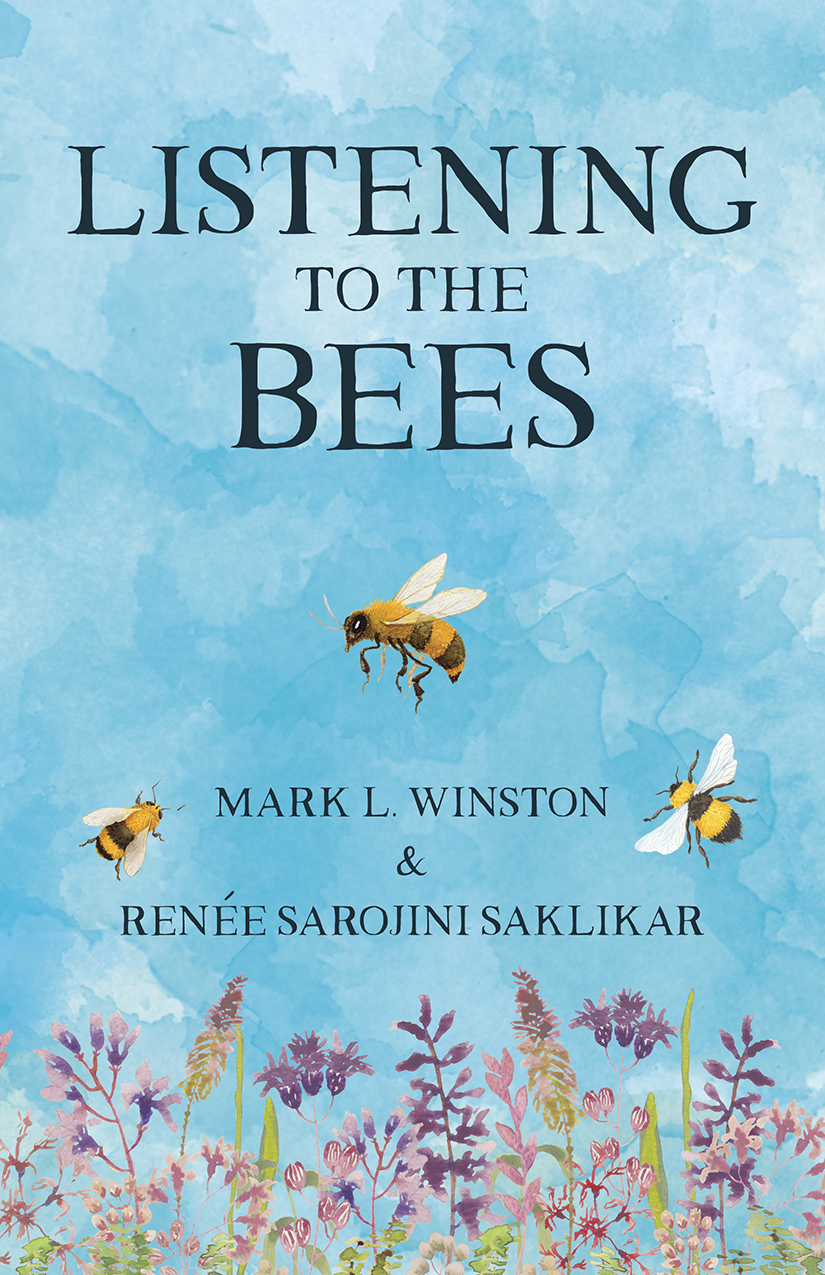
Listening to the Bees
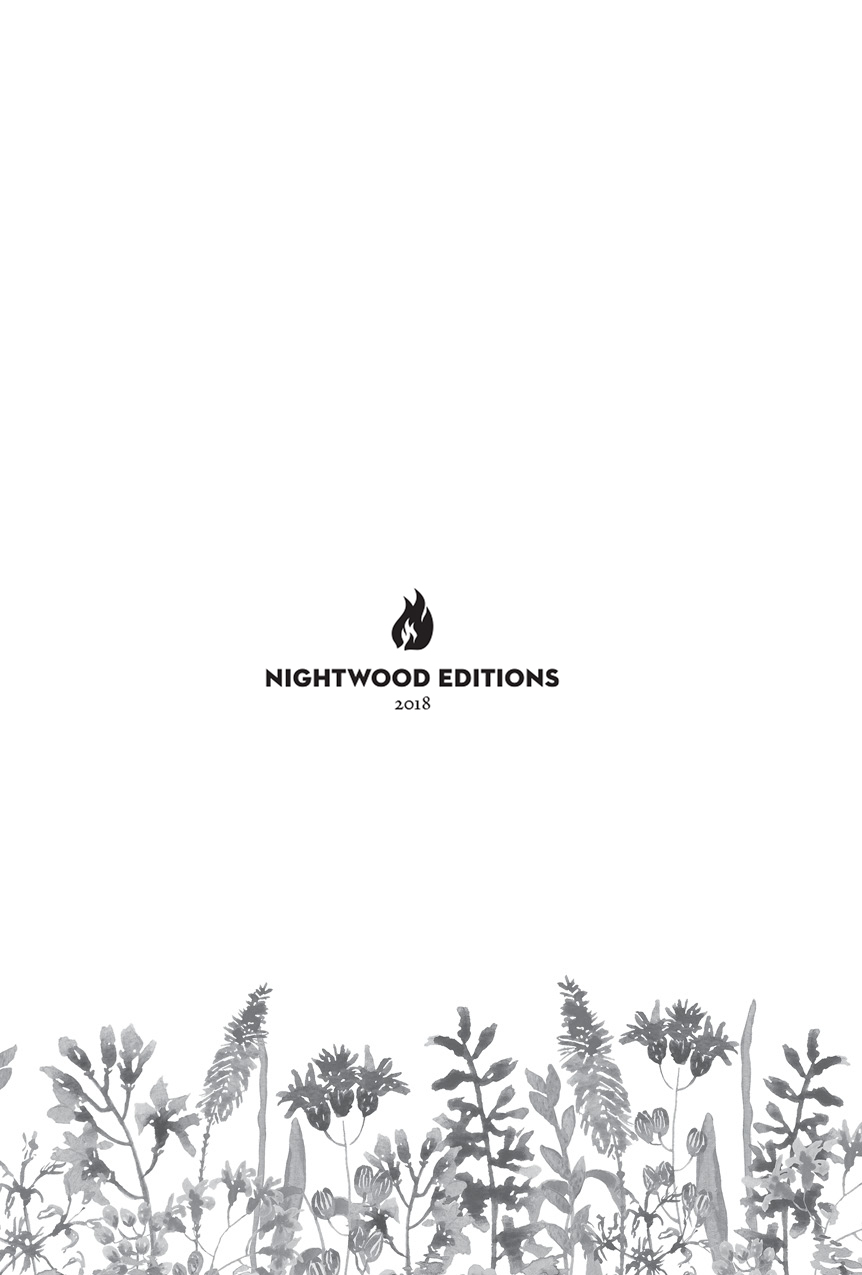
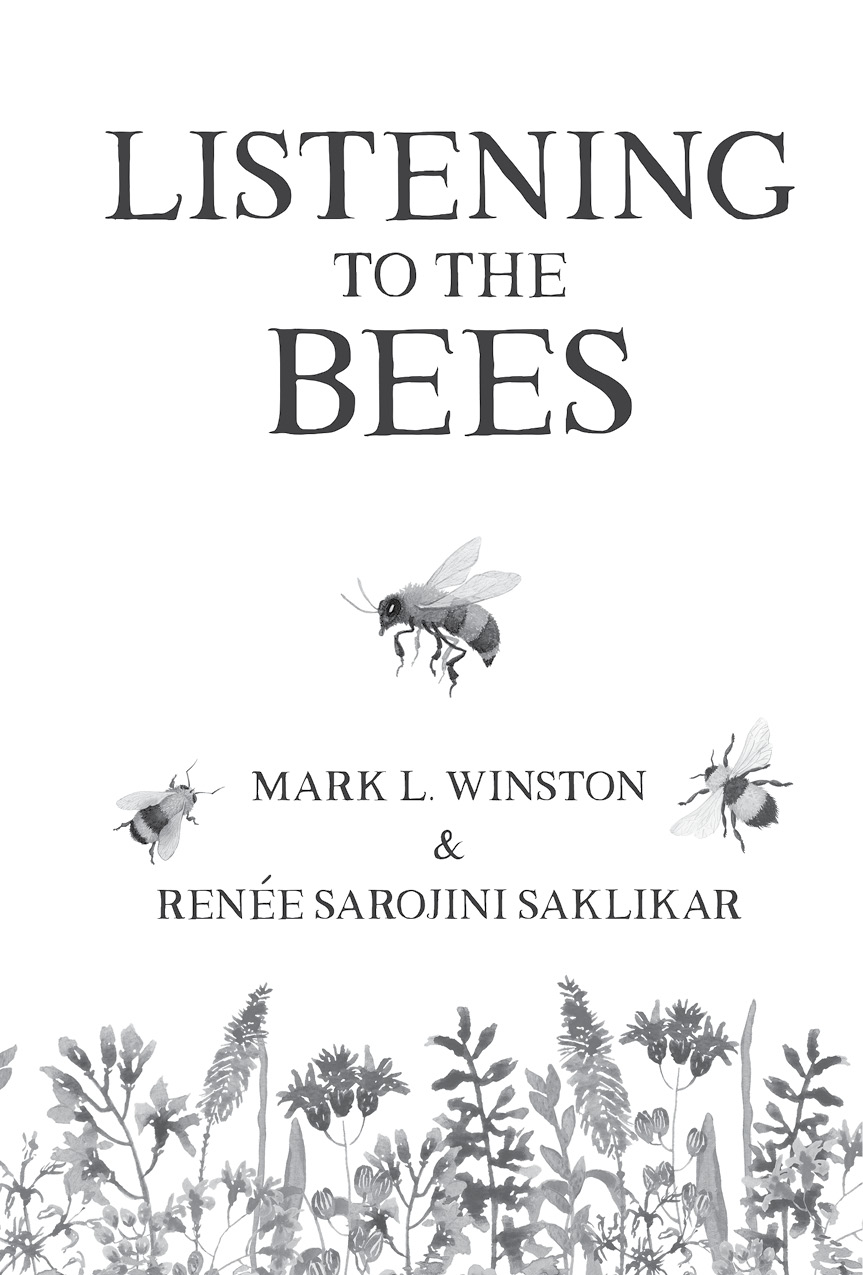
Copyright Mark L. Winston & Rene Sarojini Saklikar, 2018
all rights reserved . No part of this publication may be reproduced, stored in a retrieval system or transmitted, in any form or by any means, without prior permission of the publisher or, in the case of photocopying or other reprographic copying, a licence from Access Copyright, the Canadian Copyright Licensing Agency, .

Nightwood Editions
P.O. Box 1779
Gibsons, BC V0N 1V0
Canada
www.nightwoodeditions.com
cover design & typography : Carleton Wilson
cover & interior art: creativemarket.com



Nightwood Editions acknowledges the support of the Canada Council for the Arts, which last year invested $153 million to bring the arts to Canadians throughout the country. We also gratefully acknowledge financial support from the Government of Canada and from the Province of British Columbia through the BC Arts Council and the Book Publishing Tax Credit.
This book has been produced on 100% post-consumer recycled, ancient-forest-free paper, processed chlorine-free and printed with vegetable-based dyes.
Printed and bound in Canada.
Library and Archives Canada Cataloguing in Publication
Winston, Mark L., author
Listening to the bees / Mark Winston, Rene Saklikar.
Issued in print and electronic formats.
ISBN 978-0-88971-346-8 (hardcover).-- ISBN 978-0-88971-131-0 (ebook)
1. Environmentalism. I . Saklikar, Rene Sarojini, 1962-, author II . Title.
GE195.W56 2018 333.72C2017-905548-8C2017-905549-6

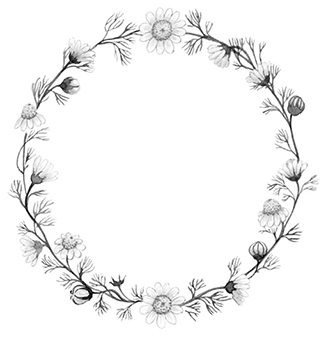

Contents
Doing science is not such a barrier to feeling or such a dehumanizing influence as is often made out. It does not take the beauty from nature. The only rules of scientific method are honest observations and accurate logic No one should feel that honesty and accuracy guided by imagination have any power to take away natures beauty.
Robert H. MacArthur, Geographical Ecology
lamor che move il sole e laltre stelle.
Love that movesthe sunother stars
Dante, Paradiso, 33.14345


Preface
Im sitting in my home office early in the morning, my favourite time for writing. We live in Vancouvers West End, a dense community located at the edge of Stanley Park, with its large expanse of gardens, recreational fields, beaches and urban forest. Our apartment is in a three-storey wood-frame building constructed in 1948, a time when apartment residences were known as much by their names as their addresses. Were The Belmanor, with fourteen apartments and no elevator.
Its what they call a character building, but not at all rundown. Historically, the residents have kept it in impeccable condition. Belmanors frame was constructed with remarkably thick wooden beams of a girth no longer easy to find, providing an underlying sense of permanence and craftsmanship. Our ancient hot water heating, quirky plumbing system and sixty-amp electrical wiring all date back to the middle of the last century, adding to the buildings charm. Weve developed good relationships with tradesmen intrigued by working on the historic guts of a building from a bygone era.
Were a cooperative, with a culture of residents each contributing work to maintain our shared space. Belmanors collective values are particularly visible in the profuse gardens that take up every bit of the small land in front and on the sides of the building, as well as up on the roof. Gardening is very much a communal effort. Lori does the rooftop, Donna and Joan the small side yard, Yolande the showpiece front garden that faces the street, Lorne and Eliot take care of their penthouse garden, and David maintains a few pots in the back alley.
Our gardeners have been conscientious about planting bee-friendly flowers. Blooming in late June as I write today are clover, thyme, oregano, strawberries, tomatoes, rhododendron, cranesbill, oriental poppies, columbine, cornflower, foxglove, hollyhock and lobelia, ensuring that we can enjoy the buzz of pollinating bees. Wild bees abound, including an array of bumblebees and numerous leafcutter, mason, mining and sweat bee species. Honeybees are also abundant, from the many hives managed by beekeepers even in downtown Vancouver. Vancouver neighbourhoods are havens for bees, which benefit from mild winters, a long February-to-October growing season and a ban on most pesticide use. For me its particularly soothing to live in an apartment and a city surrounded by plants and bees during a time when beesmanaged and wildhave been collapsing globally due to human impact on their world.
I find it particularly difficult to see the bees disappearing, as Ive spent a forty-year career listening to what the bees can teach us. The ear through which Ive listened to bees has been scientific research more than beekeeping, although Ive become a pretty fair beekeeper along the way. Research provides a focused methodology with a distinctive rigour through which to learn about bees and their societies, but alone is not sufficient to reveal what the bees can teach us.
Contemporary science tends to the mechanistic and reductionist, focused on the how rather than the why, the parts more than the whole. It wasnt always that way. The word scientist didnt even exist until 1834, when English historian and philosopher William Whewell coined the term in a sarcastic article decrying the then-expanding tendency of science to separate from its philosophical origins and be directed more narrowly to functional studies rather than the deeper questions of life.
Natural philosophy preceded science by thousands of years, its practitioners studying nature not only for facts and information but also for the spiritual gleanings and philosophical undertones that address reflective questions about our relationship to the natural and physical spheres, and to each other. The strength of science is in its exacting hypothesis testing and experimentation, which itself is a form of beauty. Its weakness is when it stops there rather than probing further, through the layers of information, into a more profound appreciation of the world around us. Bees provide superb opportunities for that subterranean layer of reflection, because some species have complex societies as social as our own. And all bees have coevolved with plants, expressing the fundamental interdependence of living things.


